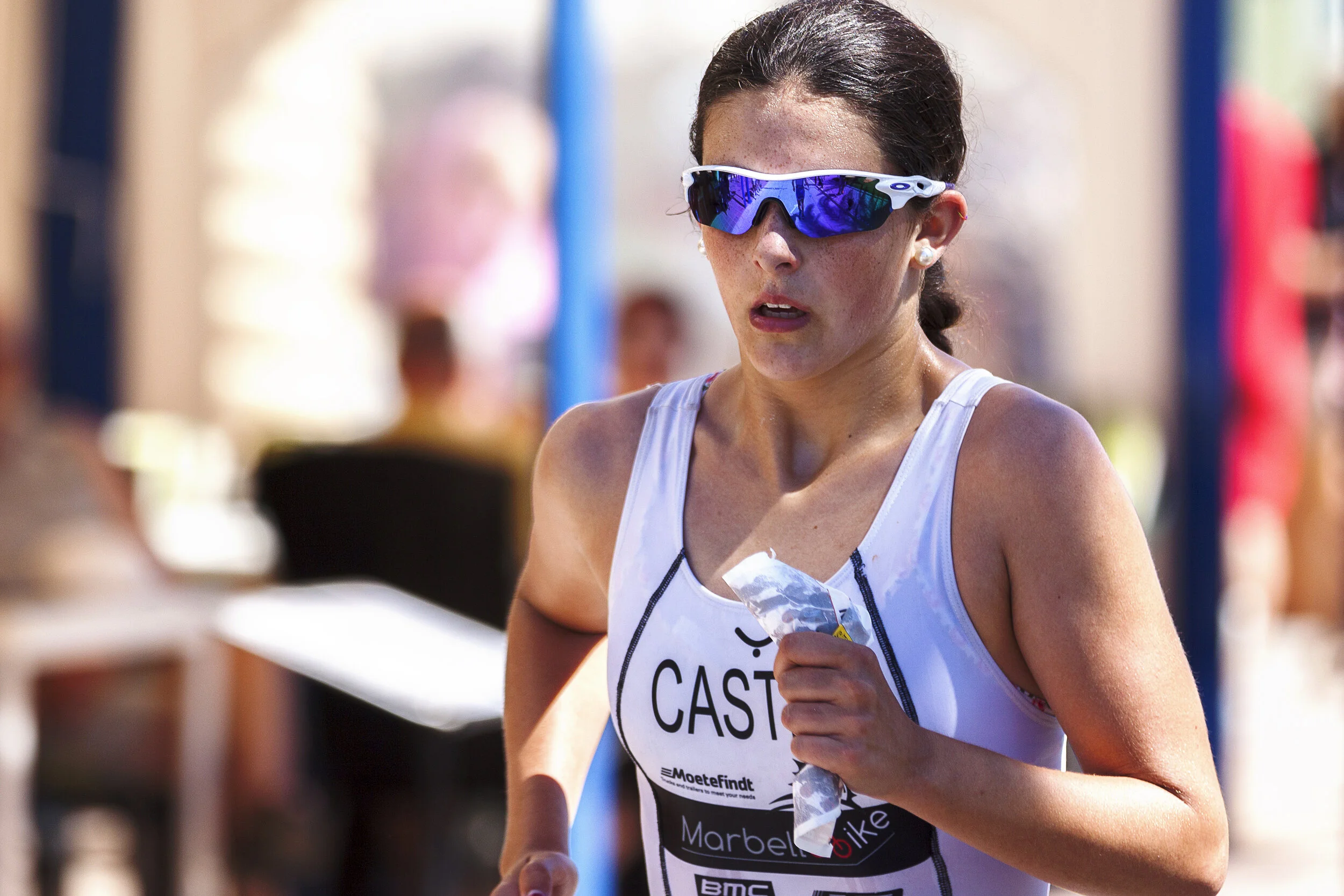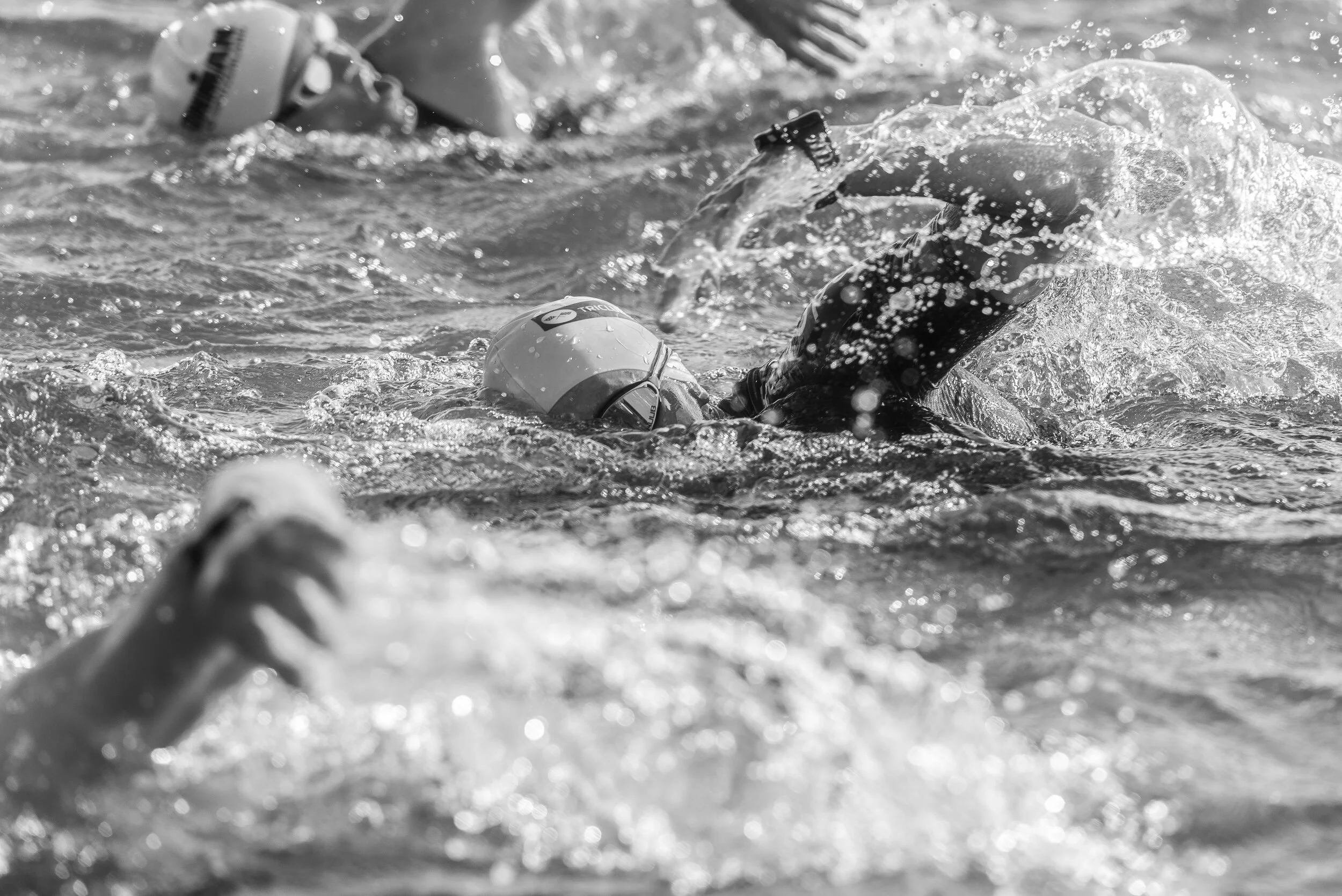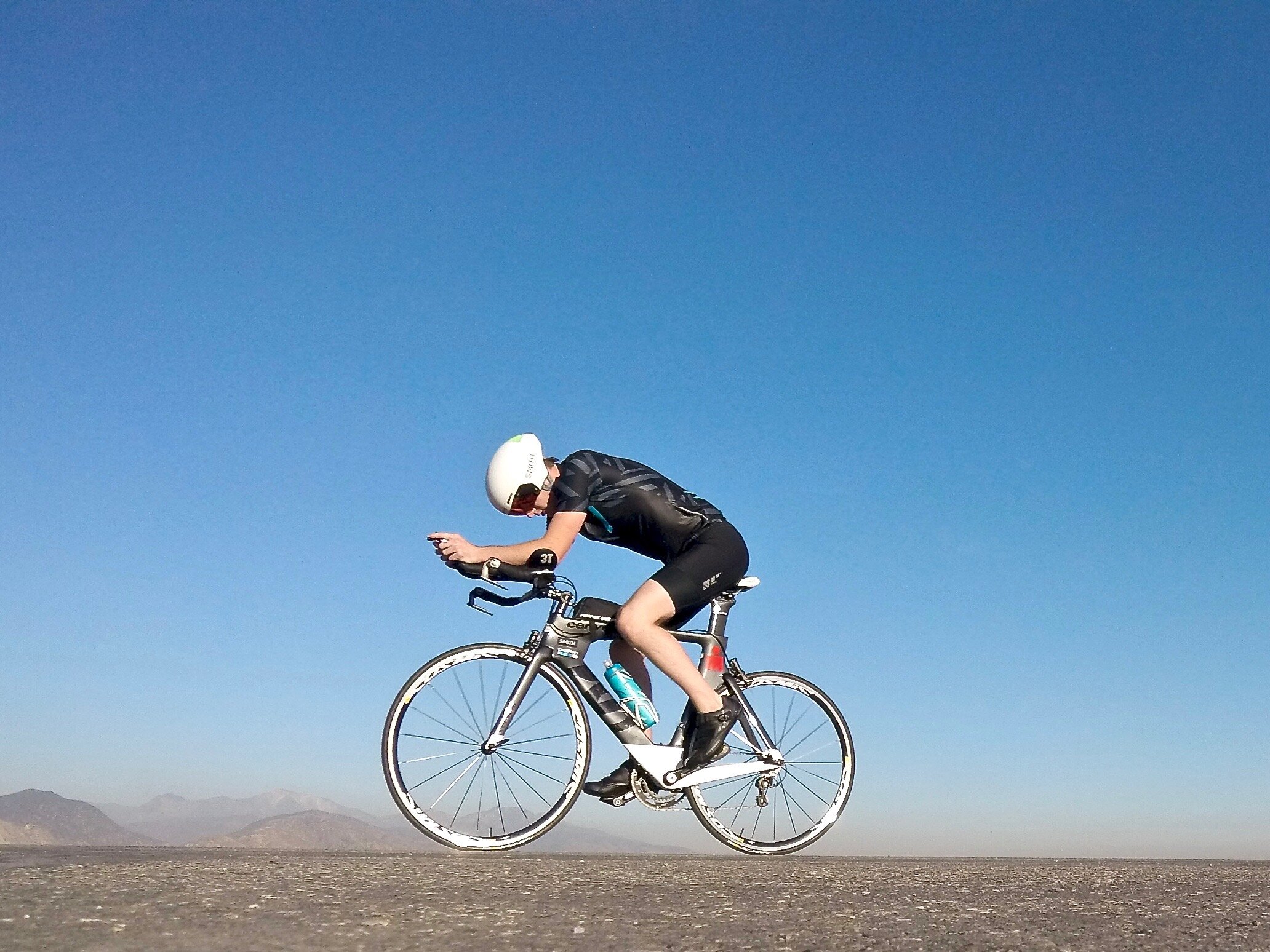Carbohydrate Intake in Endurance Athletes (literature review)
When exercise exceeds about 45 minutes duration it has been shown in numerous trials that the addition of carbohydrates during the exercise can increase performance and endurance capacity. [i],[ii],[iii]
Carbohydrate consumption can influence endurance performance via multiple mechanisms. When consumed during exercise, carbohydrates help to maintain blood glucose levels. [iv] If water only is consumed during endurance events, a drop in glucose concentration can be seen after exercising for 1 hour, decreasing further to 2.5mmol/L after 3 hours and reaching exhaustion.
However, if a carbohydrate drink is consumed instead of the water the concentration of blood glucose remains above 3mmol/L and study participants could continue to exercise at a constant intensity throughout a 4 hour period. [iv] It has also been noted that while consuming only water and exercising to exhaustion that consuming carbohydrate allowed the athletes to continue exercising, although carbohydrate consumption does not prevent fatigue, it can prevent it by approximately 45 minutes. [v]
Carbohydrate oxidation is also maintained at high levels if carbohydrates are consumed during exercise. [iv] When water is consumed during exercise, carbohydrate oxidation drops after about 1.5 hours, whereas if the water is replaced with a carbohydrate drink, carbohydrate oxidation is able to be maintained at high rates. [iv]
Consuming carbohydrates during exercise leads to the sparing of liver glycogen[vi] and possibly muscle glycogen in some endurance events [vii] but it is not thought to occur in endurance cycling events.[iv]
Levels of muscle glycogen are found to increase after carbohydrate ingestion during intermittent exercise when compared to consuming water only.[viii] This may be due to one of two reasons, either the breakdown of muscle glycogen was minimised or the consumed carbohydrate was utilised for muscle glycogen synthesis in non-active muscles during exercise. [ix]
Carbohydrate consumption during exercise may also help to improve motor skills, especially during the latter stages of exercise possibly due to increased carbohydrate availability to be used as a substrate by central and peripheral nervous systems. [x] It is still a topic of investigation as to whether the effect the consumption of carbohydrates has on the central nervous system is due to the general taste of sweetness or an actual detection of glucose. It does appear that increases in brain activity and improved motor skills are directly related to the carbohydrate and not just sweetness as demonstrated by pitting glucose solutions against identical tasting placebos. [xi]
This literature review looks at research into the consumption of carbohydrate in endurance exercise. The key issues that have been covered in the literature include the schedule of carbohydrate consumption, timings, amounts and types of carbohydrates. Also, once carbohydrates are ingested, their oxidation and factors that affect it, for example, intensity of exercise, other dietary factors and glycogen levels in muscles, are other key points of research that have been reviewed.
Literature Review
Carbohydrate consumption during endurance exercise has consistently been shown to have ergogenic benefits. [xii],[xiii],[xiv],[xv],[xvi],
The majority of research in this area is carried out using cycling as the sport and measuring how carbohydrate intake effects exercise capacity by measuring either time to exhaustion or time trial performance.
A meta-analysis of the carbohydrate effects on exercise performance found that there was a benefit to performance in the range of 2% impairment to 6% improvement of performance and chalked up the differences in these effects to the variety of protocols and strategies used combined with individual subject variances.
Of note is that the best improvements were seen when carbohydrate was combined with protein.
In order to investigate whether the ergogenic effects attributed to carbohydrate consumption were actually due to the carbohydrate content or merely a placebo effect Hulston and Jeukendrup[xvii] compared placebo liquids to glucose liquids in male cyclists. In time trials the athletes competed 11.3% faster when consuming the carbohydrate solution which suggests that the placebo effect is not happening.
The mechanisms by which carbohydrate consumption creates ergogenic effects in endurance exercise are discussed broadly across research papers.[xviii] Depletion of glycogen stores in the muscle leads to fatigue and so it is considered that carbohydrate feeding during endurance activities may decrease the breakdown of muscle glycogen, sparing these stores and thereby fighting off fatigue.[xviii] Although first demonstrated in 1967 by Bergstrom & Hultman[xviii] who found a 20% reduction muscle glycogen breakdown when subjects were given a glucose infusion, it has been repeatedly reproduced that carbohydrate consumption during endurance exercise leads to a reduction in muscle glycogen breakdown of between 20-28%. [vii],[xiii],[xix],[xx],[xxi],[xxii],[xxiii]
Not all researches reached the same conclusions though, with the same researchers who found a 26% decrease in muscle glycogen degradation in their first study[xiii] not finding the same effect in follow up studies.[xxiv] The difference between studies being higher carbohydrate intake and longer duration exercise in the first trial (172g carbohydrate for a 4 hour cycle)[xiii] compared to the second trial (120g carbohydrate for a 2 hour cycle). [xxiv] This was confirmed by other researchers who found that although endurance increased with carbohydrate consumption, there was so sparing of muscle glycogen. [iv] The reason for these differing results may be due to carbohydrates ability to spare muscle glycogen increasing as time progresses or depending on what type of muscle fibre is being spared. [xxv]
Time dependency for muscle glycogen sparing was shown in a study of endurance cycling where muscle glycogen use decreased in the first hour of cycling for those subjects fed carbohydrates compared to placebo.
In a study that examined muscle fibre specific sparing, it was found that the muscle sparing effect of carbohydrate consumption was seen only on the type 1 muscle fibres during shorter exercise such as running for 60 minutes.
When we compare this to a trial that focused on longer duration exercise (3 hours of moderate cycling), we can see that the glycogen sparing effects of carbohydrates are seen only on the type 2 muscle fibres.[xxii] This makes sense as the use of muscle fibre switches to use more type 2 fibres in endurance exercise. [xxv]
Founding research in the area suggests that consuming carbohydrate during endurance exercise leads to a maintenance of blood sugar levels and therefore high rates of oxidation of carbohydrates.4 Further studies confirmed that carbohydrate feeding after subjects had reached exhaustion led to a delayed time to fatigue after blood glucose returned to normal. [v] Consuming large amounts of carbohydrates in endurance exercise can also block or drastically reduce hepatic glucose production.[xxvi],[xxvii] despite this process being highly regulated by the body. By sparing liver glycogen, as athletes approach the finish of an endurance event there is more carbohydrate available. [xxviii]
However, not all research has found that carbohydrates being used to maintain blood glucose levels has a positive effect on performance [xxviii],[xxix] with some research showing that the result is extremely variable and likely dependant on multiple factors such as the individual athlete, exercise type, intensity and duration and the feeding protocols, timings and strategies. [xxix],[xxx],
The form of carbohydrate used appears to not be of importance in regards to the effect on performance in endurance athletes with solids, liquids and gels all having similar ergogenic effects.[xxx],[xxxi]
Summary and Recommendations
For endurance athletes, the intake of carbohydrates is essential when exercising at a medium to high intensity for more than 2 hours. The most likely reason for the performance and endurance enhancement seen with carbohydrate consumption is that glycogen stores in both muscle and liver are spared and high rates of carbohydrate oxidation can be maintained.
Based on the literature review, the following recommendations can be made:
High intensity exercise lasting 30-75 minutes, carbohydrate mouth rinse [xxxii]
Exercising for less than 3 hours, 60g carbohydrate per hour [xxx]
Exercising for more than 3 hours, 90g carbohydrate per hour [xxx]
The carbohydrates consumed during exercise should be varied with a mixture of glucose, fructose and sucrose in order to allow for high rates of exogenous carbohydrate oxidation. Although these recommendations are aimed at well trained endurance athletes who routinely consume large amounts of carbohydrates, it must also be remembered that this is a significant amount of carbohydrates and that for some individuals it may cause gastrointestinal discomfort. This, along with personal preferences and likelihood of adherence to the protocol must be taken into account when prescribing carbohydrates during endurance events.
For restoration of glycogen stores post exercise, especially if competing in multiday events, it is recommended to consume 1.2g per kg body weight per hour for between 4-6 hours after exercise. For a targeted restoration of skeletal and liver glycogen it is recommended that a combination of glucose and fructose or glucose and galactose be consumed. Results can be further improved by combining carbohydrate with protein at a dose of 0.2-0.4g per kg body weight per hour.
The form of carbohydrate used is down to personal preference for the individual athlete and liquid, gels or solid carbohydrates should be considered based on these preferences and the likelihood of athlete compliance to the protocols.
To improve your performance and optimize nutrition for your next event, work with me to get a complete diet analysis and a personalized meal plan tailored to your specific needs.
References
[i] Jeukendrup AE. Carbohydrate intake during exercise and performance. Sports Med. 2013 Nov;43(11):1139-55.
[ii] Jeukendrup AE. Carbohydrate feeding during exercise, Eur J Sport Sci, 8:2, 77-86.
[iii] Hargreaves M, Hawley JA, Jeukendrup AE. Pre-exercise carbohydrate and fat ingestion: effects on metabolism and performance. J Sports Sci. 2004 Jan;22(1):31-8
[iv] Coyle EF, Coggan AR, Hemmert MK, Ivy JL. Muscle glycogen utilization during prolonged strenuous exercise when fed carbohydrate. J Appl Physiol (1985). 1986 Jul;61(1):165-72
[v] Coggan AR, Coyle EF. Carbohydrate ingestion during prolonged exercise: effects on metabolism and performance. Exerc Sport Sci Rev. 1991;19:1-40
[vi] Jeukendrup AE, Raben A, Gijsen A, Stegen JH, Brouns F, Saris WH, Wagenmakers AJ. Glucose kinetics during prolonged exercise in highly trained human subjects: effect of glucose ingestion. J Physiol. 1999 Mar 1; 515(Pt 2): 579–589
[vii] Tsintzas K, Williams C. Human Muscle Glycogen Metabolism During Exercise. Effect of Carbohydrate Supplementation. Sports Med 25 (1), 7-23. 1 1998
[viii] Yaspelkis BB, Patterson JG, Anderla PA, Ding Z, Ivy JL. Carbohydrate supplementation spares muscle glycogen during variable-intensity exercise. J Appl Physiol (1985). 1993 Oct;75(4):1477-85.
[ix] Kuipers H, Keizer HA, Brouns F, Saris WH. Carbohydrate feeding and glycogen synthesis during exercise in man. Pflugers Arch. 1987 Dec;410(6):652-6.
[x] Williams C, Rollo I. Carbohydrate Nutrition and Team Sport Performance. Sports Med. 2015; 45(Suppl 1): 13–22.
[xi] Chambers ES, Bridge MW, Jones PA. Carbohydrate sensing in the human mouth: effects on exercise performance and brain activity. J Physiol. 2009 Apr 15; 587(Pt 8): 1779–1794.
[xii] Ivy J, Costill D, Fink W. Influence of caffeine and carbohydrate feedings on endurance performance. Med Sci Sports Exerc. 1979;11(1):6–11
[xiii] Hargreaves M, Costill D, Coggan A. Effect of carbohydrate feedings on muscle glycogen utilization and exercise performance. Med Sci Sports Exerc. 1984;16(3):219–22
[xiv] Mitchell J, Costill D, Houmard J. Effects of carbohydrate ingestion on gastric emptying and exercise performance. Med Sci Sports Exerc. 1988;20(2):110–5.
[xv] Neufer P, Costill D, Flynn M. Improvements in exercise performance: effects of carbohydrate feedings and diet. J Appl Physiol. 1987;62(3):983–8
[xvi] Vandenbogaerde T, Hopkins W. Effects of acute carbohydrate supplementation on endurance performance. Sports Med. 2011;41(9):773–92
[xvii] Hulston C, Jeukendrup A. No placebo effect from carbohydrate intake during prolonged exercise. Int J Sport Nutr Exerc Metab. 2009;19(3):275–84
[xviii] Bergstrom J, Hultman E. A study of the glycogen metabolism during exercise in man. Scand J Clin Lab Invest. 1967;19: 218–28
[xix] Bjorkman O, Sahlin K, Hagenfeldt L, et al. Influence of glucose
and fructose ingestion on the capacity for long-term exercise in
well-trained men. Clin Physiol. 1984;4:483–94.
[xx] Tsintzas O, Williams C, Boobis L, et al. Carbohydrate ingestion
and glycogen utilization in different muscle fibre types in man.
J Physiol. 1995;489(Pt 1):243–50.
[xxi] Tsintzas O, Williams C, Constantin-Teodosiu D, et al. Phos-
phocreatine degradation in type I and type II muscle fibres
Carbohydrate Use During Exercise
1151
during submaximal exercise in man: effect of carbohydrate
ingestion. J Physiol. 2001;15(537):305–11.
[xxii] Stellingwerff T, Boon H, Gijsen AP, et al. Carbohydrate sup-
plementation during prolonged cycling exercise spares muscle
glycogen but does not affect intramyocellular lipid use. Pflugers
Arch. 2007;454(4):635–47
[xxiii] Erickson M, Schwartzkopf R, McKenzie R. Effects of caffeine,
fructose and glucose ingestion on muscle glycogen utilization
during exercise. Med Sci Sports Exerc. 1987;19:579–83.
[xxiv] Hargreaves M, Briggs C. Effect of carbohydrate ingestion on
exercise metabolism. J Appl Physiol. 1988;65(4):1553–5.
[xxv] Gollnick P, Piehl K, Saltin B. Selective glycogen depletion
pattern in human muscle fibres after exercise of varying inten-
sity and at varying pedalling rates. J Physiol. 1974;241:45–57.
[xxvi] Jeukendrup A, Raben A, Gijsen A, et al. Glucose kinetics during
prolonged exercise in highly trained human subjects: effect of
glucose ingestion. J Physiol. 1999;515(Prt 2):579–89.
[xxvii] Howlett K, Angus D, Proietto J, et al. Effect of increased blood
glucose availability on glucose kinetics during exercise. J Appl
Physiol. 1998;84(4):1413–7.
[xxviii] Felig P, Cherif A, Minagawa A, et al. Hypolgycemia during
prolonged exercise in normal men. N Engl J Med. 1982;306(15):
395–900
[xxix] Claassen A, Lambert E, Bosch A, et al. Variability in exercise
capacity and metabolic response during endurance exercise after
a low carbohydrate diet. Int J Sport Nutr Exerc Metab.
2005;15(2):97–116.
[xxx] Pfeiffer B, Stellingwerff T, Zaltas E, et al. Oxidation of solid
versus liquid carbohydrate sources during exercise. Med Sci
Sports Exerc. 2010;42(11):2030–7.
[xxxi] Lugo M, Sherman W, Wimer G, et al. Metabolic responses when
different forms of carbohydrate energy are consumed during
cycling. Int J Sport Nutr. 1993;3(4):398–407
[xxxii] Cermack & Loon 2013, The Use of Carbohydrates During Exercise as an Ergogenic Aid




